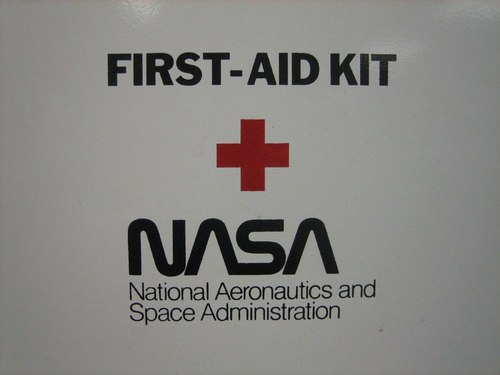This was March 2008 | « February 2008 | Main | April 2008 »
When is the last time you bought music online?
Posted on Monday, March 24, 2008
Came to mind after reading this discussion on TechCrunch following Arrington's reaction on a post in the NYT arguing for artists to receive a cut in the sell of a large social network Bebo hosting a lot of music. Makes sense that the artists should get their share. But then again, its highly unlikely it will ever happen. Unless the artists just unite and create a platform themselves.
On the comments section, there needs to be some innovation in how these discussions are displayed. Surely just listing them under one another is not the only way we can visually interface these threads of discussions.
Cloud computing
Posted on Sunday, March 23, 2008
Nicolas Carr keeps with his story of The Big Switch. This comes from a piece he wrote on the Advertising Age website:
One change that's already obvious is the blurring of the line between software and media. Consumer software, until recently sold like a package good, is becoming the next great media business. The success of a software program is coming to be judged not by unit sales but by the ability of the provider to attract an audience, hold that audience's attention with interesting data and tools, and deliver relevant ads to it.The whole story is well worth the read. Btw, I am not getting paid to include this link or any of the earlier references to that book. Its free publicity. Which all combined seems to help to get him into the WSJ bestsellers list. He must have touched a nerve in IT land.
Richard Dawkins @ UC Berkeley
Posted on Friday, March 21, 2008

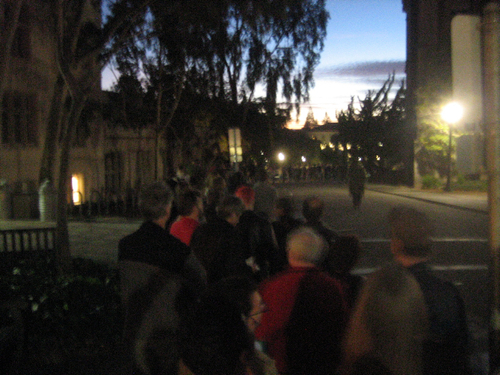
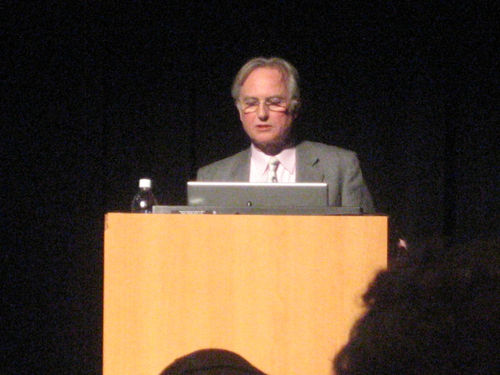
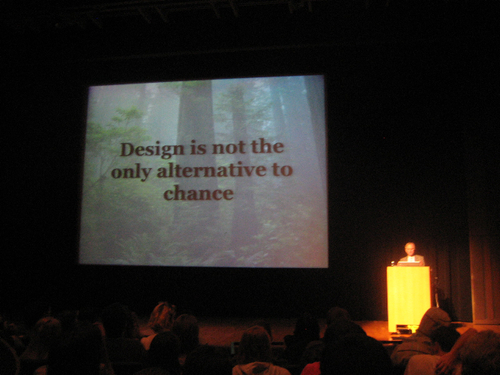
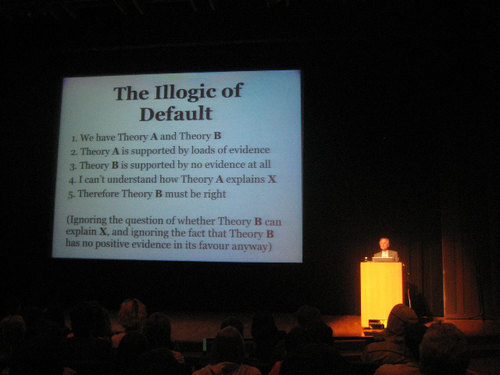
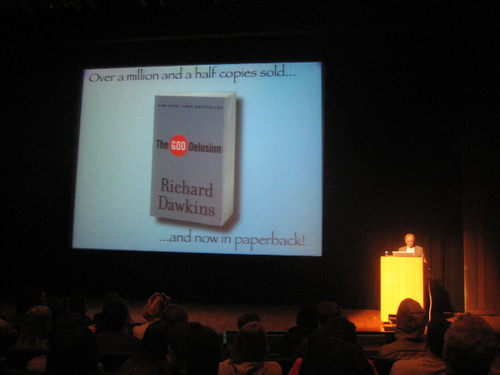
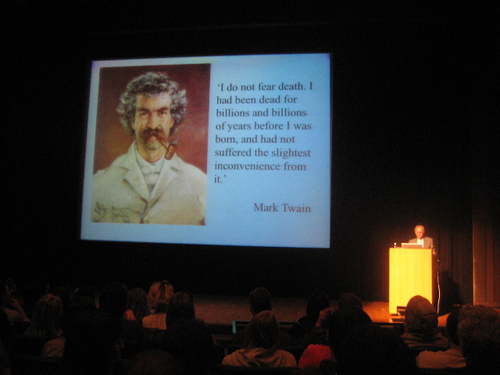
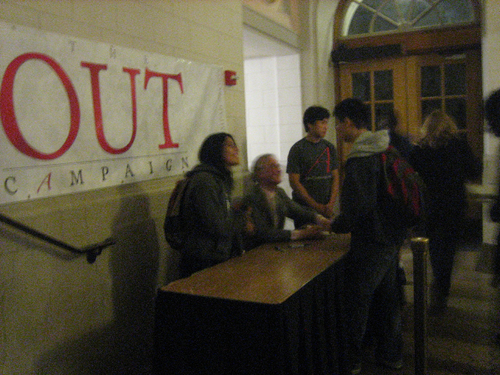
There goes another one from my wishlist. 2 weeks ago I went to see a lecture by Richard Dawkins in the Wheeler Auditorium at UC Berkeley. Although the God Delusion is not my cup of tea (I don't have a religion to loose), my admiration of him comes mainly from his evolutionary work like the Selfish Gene and others. Arriving that saturday evening, things were looking a bit grim at first, I was expecting not a big turn out, but when I arrived there was a large crowd and a long row. Good to see he has a big following in the US. With a bit of luck I managed to get into the auditorium on a standby ticket.
Next on my list: the computer history museum, lunch at Apple and Google HQ, and a couple of others. Keep you posted. Oh, and another one, the Columbia supercomputer at NASA Ames (image below), been there as well wednesday, thanks Creon.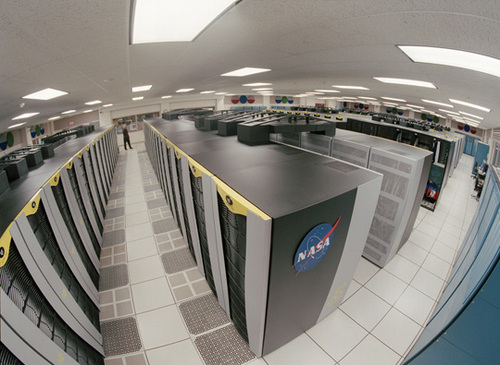
A.C. Clarke died today
Posted on Wednesday, March 19, 2008
...(bbc news)
update: Google's Chief Evangelist Vint Cerf also says goodbye to Clarke in this post. It includes a nice video of Clarke recorded end of last year.
A story of planets and links
Posted on Wednesday, March 12, 2008
How is your User Interface to the Solar System holding up?
Posted on Wednesday, March 5, 2008

Commenting on the following statement in a follow-up WWT post over at OgleEarth:
Some more notes: Neither Google Sky nor WWT are comparable taxonomically to Celestia. Celestia is a different beast, a 3D model of the universe that you can roam around in, much more like the industrial strength UniView shown off att ISDE5 in June 2007. Google Sky and WWT let you zoom in on a 360-degree panorama of the universe taken from just one perspective: Earth. It would certainly be nice to have a 360-degree panorama of the sky as a backdrop when roaming around the solar system, and to have Earth and Mars and the Moon rendered as accurate virtual globes inside this application, but until now neither Google nor Microsoft have betrayed any sign of building something like it. Quite possibly, that’s because there are few ads online for martian property at the moment:-)
...Avi gives a plausible (as in: worth fact-checking) reason why neither Google Earth nor WWT have indeed evolved sofar towards a 3D 'Celestia style' interface to the Solar System:
The earliest versions of Keyhole's software included a textured 3D moon and point-rendered stars, btw, as well as some basic day/night cycle. The moon could even be spun like the earth by grabbing it.
But navigating around the surface of a sphere with a 2D input device is a much more constrained problem than navigating the 3D universe -- much easier to make a UI that is intuitive for the most number of people.
That's the main reason to not include the Moon and Mars as "places you can go" (without swapping base maps).
Its pretty likely that UI considerations resulted in the overlay (swapping base maps) metaphor for displaying different celestial bodies. Celestia's UI definitely made me wanna get rid of the program all together when I first tried to use it. Horrendous interface, especially if you're used to...Google Earth. ;-)
After a while though, I got the hang of it and I was taken by the immersiveness of the experience of virtually flying from planet to planet, out to the galaxy, and back home again (earlier posts 1 and 2). I am with Avi on the issues surrounding 3D navigation design, but its also worth restating in this context a comment made by Google Earth CTO Michael Jones a while ago, paraphrasing Tjalling Koopmans (thanks for the transcript Greg):
Your perception of a thing that is a viable problem to think about is shaped by the tool you can use.
If I wanted to build a swimming pool and I had a spoon, I wouldn't think about doing it. If had a backhoe...
If we look at tools, we discover they have a life of their own. People are shaped by their tools.
Sometimes the solution to important problems ... [are] just waiting for the tool. Once this tool comes, everyone just flips in their head.
Its an interesting question to see how the UI design choices made with these early virtual globes will effect people's long-term perception of 'that place out there'. Which brings me to different topic all together that has been going around in my mind the last few weeks: evolution.
Evolution: A problem solving algorithm: (1) variation -> (2) selection -> (3) replication -> (1)...
The first week and a half here in Californie I've enjoyed reading a book I brought from the Netherlands called "Evolutionary thinking, the Influence of Darwin on our worldview" (in Dutch). Starting off with an introduction into the life and work of Charles Darwin, it describes a variety of scientific and cultural fields where evolutionary thinking has since gotten a strong foothold, like evolutionary psychology, sociobiology, antropology, language, evolution of culture, religion etc.
Ever since reading Richard Dawkins' "The Selfish Gene" I've been fascinated by the all encompassing reach of the theory of evolution and, funny how these things go, since then I'm seeing and reading about it everywhere (yep, selfish memes exist too ;-). Not only at the Dutch publisher of above book (who's house is literally scattered with 'Darwinian' books and who seems to be as much inspired by Darwin as I am), but in the fact that it is considered by many (like Daniel C. Dennett) to be the mother of all scientific theories.
Being in the space field, and trying to scope what's in store for us in this field, It makes me wonder to what extend "evolution the theory" can be applied to humankind's space endeavours (and rationales, and...why not: space agencies), and if so, what it can tell and/or teach us about the way things might develop on the long run, i.e. where might the problem solving algorithm of evolution play out when it comes to our activities in outer space.
This is a rather wide topic to get my head around, and I don't have any answers yet (saving us from an asteroid impact and Earth observation activities seem to be 2 easy candidates in evolution's 'survival of the fittest' routine), but its an intruiging topic if you ask me (e.g. what's the relation between evolution and space funding), and one I plan to spent some more time reading, thinking (and writing) about if I find the time. Cause as Eric Schmidt is fond of saying 'Don't fight the Internet' (and Google seems to be taking a nifty evolutionary approach to their business model), I think a good start for space would be: Don't fight evolution.
Space To The Rescue Part 2
Posted on Tuesday, March 4, 2008
First workday at NASA Ames today. After hours I made a scroll around the neighbouring Moffet Field premises (aerial overview).![]()
Click to Enlarge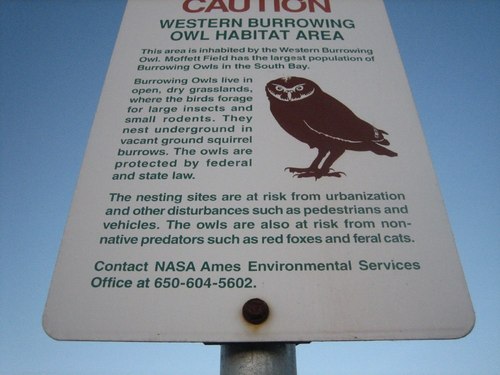
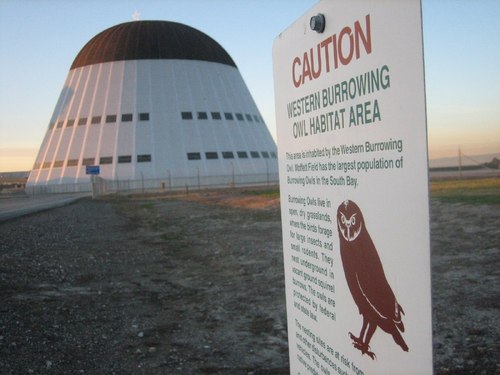
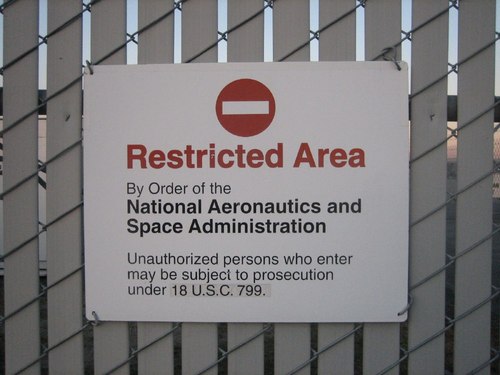

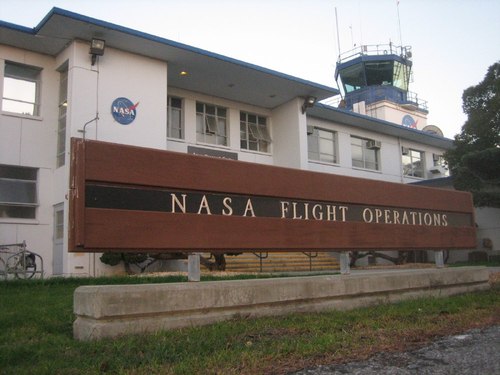
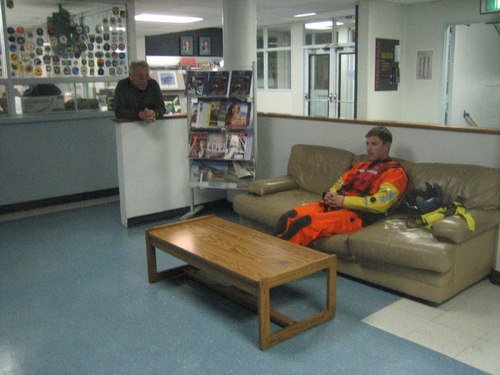
Space To The Rescue
Posted on Monday, March 3, 2008
- Need a good
excusereason to go to New York? Read this NYT review of the MOMA exhibition 'Design and the Elastic Mind'. Makes me wanna go! More at MOMA (via Google LatLon) - TED was on. Missed it. Next year. Here are a lot of good videos from it. Lots of buzz about Microsoft's new move vs Google Earth/Sky: World Wide Telescope. The TED video is here. Indepth reviews at OgleEarth and GoogleEarthBlog. Looking forward to a test drive, which will have to wait untill they release it this spring.
- Just learned that Google is running a www.google.com/space subdomain these days with the following overall statement:
There's nothing we love more than ambitious research with world-changing potential, and space exploration and research have long produced much of the scientific community's most ambitious, even audacious work.
We honor the work that's been done in the past, and want to foster and support that work today and in the future. By supporting space-related research and exploration, we hope to inspire a new generation of innovators to enter the fields of science, technology, engineering and mathematics. We believe that the same imagination and passion that fuels space research and drives those who meet the challenge of space exploration will also help advance research and development in fields closer to our own.
That's certainly a statement I can get my head around, especially coming from an IT/media company ;-)
Btw, I learned about the subdomain here at Ames where Chris Kemp and Matthew Hancher (NASA's Planetary Content team Project lead) showed us the Google Street View equivalent on the Moon: Apollo panoramas...uhm...lunalocated (?). Quite impressive. Story telling is a big part of the overall picture, as both reviews (above) of the upcoming Google Sky competitor are right in mentioning. The possibility to re-live Apollo adventures in their appropriate context is excellent. Its still a bit text-heavy for now, but I am sure that that's gonna change as the platforms evolve. Btw2, for some reason this most recent release of Google Moon (think it was this post d.d. 13th September 2007 where it was announced) didn't make it up the list for me, which makes me wonder: is it time for a dedicated Google Space Blog?
The future is process, not a destination
Bruce Sterling
Everything is ultimately becoming information technology
Ray Kurzweil
Data is the Intel inside
Tim O'Reilly
There is only one machine and the web is its OS
Kevin Kelly
The medium is the message
Marshall McLuhan
